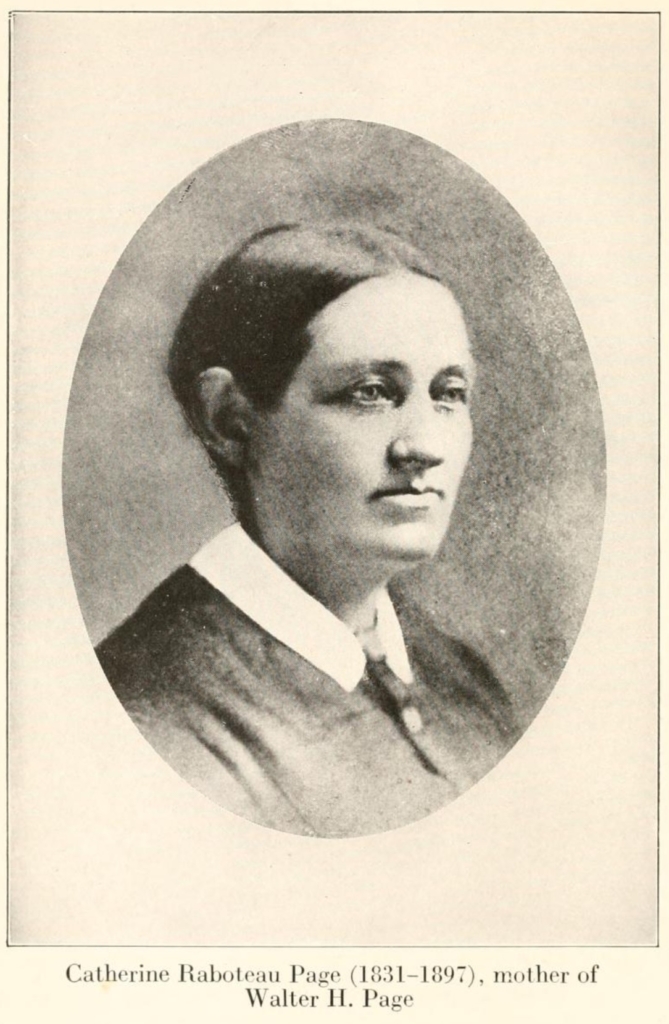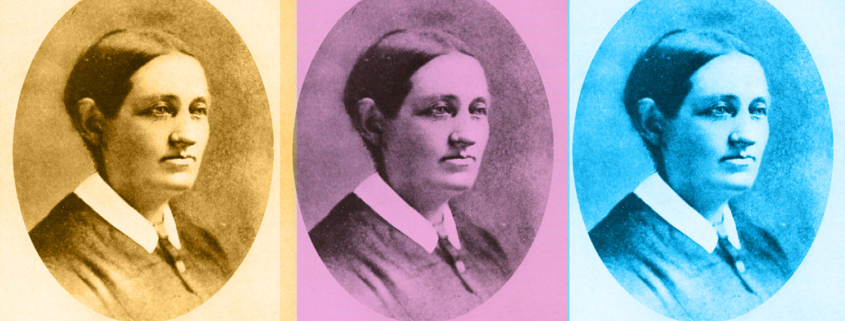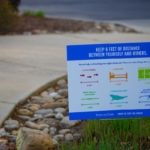Cary History: Catherine Page
Cary, NC — Much has been written about Cary’s founder, Allison Francis “Frank” Page — deservedly so. But it seems that we know less about his wife, Catherine, or Kate.
It’s said that behind every great man is a great woman (and I’ve also heard my friend Marla Dorrel aptly say that behind every great woman is a good man), so I set out to learn about Catherine Frances “Kate” Raboteau Page and share what I learned.
A Daughter and Wife
Catherine Raboteau was born November 12, 1831 in Fayetteville, North Carolina to John Samuel and Esther Barclay Raboteau. She attended Franklin Female Academy, obtaining an unusually robust education for women of that time, including learning French and algebra.
She met Frank Page, who often traveled to Fayetteville, and the two were married in 1849 when she was 17 and he was 24. They soon purchased 218 acres for $2,000 in what is now downtown Cary, including the present-day site of Town Hall.
An Innkeeper
In 1868, the Pages built the grand hotel later known as the Page-Walker Hotel and today serving as the Page-Walker Arts and History Center. Kate Page oversaw the hotel’s operations, which was fitting because her ancestors had been innkeepers.
The Pages bought, sold and donated land throughout the area that is now downtown Cary. Through real estate and other businesses, including Frank’s main business of a lumber mill, the Pages became quite prosperous. According to Tom Byrd in Around and About Cary:
The sudden prosperity of the Pages is reflected in the way they spent money. Within a year or two of 1870, Frank and Kate enlarged the family home, built a hotel, built a school, and sent their son Walter off to college. And they were probably the major benefactors of the town’s first (Methodist) church, built in 1871.
With the advent of the Civil War, the Pages endured tougher times. In Ghost Hunting North Carolina, Kala Ambrose writes:
The Civil War decimated [the Pages’] family wealth, as it did so many others, and there are some reports that Mrs. Page was seen creating drapes made from worthless $100 Confederate bills.
A Mother of Four in the Mid-1800s
Catherine took the lead in raising the eight Page children. Around and About Cary notes that “Editor [Josephus] Daniels said the ‘perspicacity and brilliance’ of the children came from her (Raboteau) side of the family while he [Frank] furnished the practical business sense.” In that book we also learn:
Frank and Kate Page raised a houseful of achievers. Walter Hines Page (the eldest child, 1855 – 1918) was old Cary’s most distinguished son, a journalist, editor, and ambassador to Great Britain. … Their second child, Robert Newton Page (1859-1933) was a congressman for many years and a candidate for governor in 1910. Their third child, Henry Allison Page (1862 – 1935), was a banker and railroad president. Their oldest daughter, Emma Catherine Page (1864 – 1938), was a teacher at Greensboro College. Their next son, Junious Raboteau Page (1866 – 1938), was a banker also. Their next two children, Mary Esther Page (1869 – 1961) and Frances Page Wilder (1872 – 1941), were highly respected members of their community. And their youngest child, Allison F. (Frank) Page, Jr., (1875 – 1934) was the first full-time chairman of the State Highway Commission.
A Woman of Intelligence
Catherine was a partner in her husband’s many endeavors, and by several accounts, a well educated, religious, dignified woman of intelligence and grace with a fine sense of humor. A front-page article in the August 9, 1989 edition of the Cary News, as quoted in Around and About Cary, describes Catherine:
As a mature woman (Mrs. Page) was undemonstrative and soft spoken; a Methodist of old-fashioned Wesleyan type, she dressed with a Quaker-like simplicity, her brown hair brushed flatly down upon a finely shaped head and her garments destitute of ruffles or ornamentation … Yet the memories … (she) left are not all austere … She had a quiet sense of humor and a real love of fun.
Catherine Frances “Kate” Raboteau Page stamped her imprint on Cary’s history. Perhaps content in the nineteenth century to be seen as “the woman behind the man”, I think that Kate Page was “a woman out front” who was a significant influence in Cary’s early history.

Sources
- Find A Grave, https://www.findagrave.com/memorial/87723591/catherine-frances-page
- Byrd, Tom. Around and About Cary, 2nd edition 1994. Illustrated by Jerry Miller.
- Ambrose, Kala. Ghosthunting North Carolina, 2011, p. 163
- NCPedia, https://www.ncpedia.org/biography/page-allison-francis
Story by Brent Miller.




Very interesting, too often it’s only men whose history is recorded in earlier times
Indeed, Kirk. We men owe so much to the women of Cary!
Thanks Brent for always being a great source of historical knowledge. If I read correctly, Civil War made Pages broke but they earned it back quickly post war in lumber business. Where was the lumber mill?
Thanks Nancy. The lumber mill was adjacent to the Page Homestead where Town Hall is today.
Interestingly, after founding Cary, Frank started over in Aberdeen NC, where he’s buried (and there’s a story behind that!)